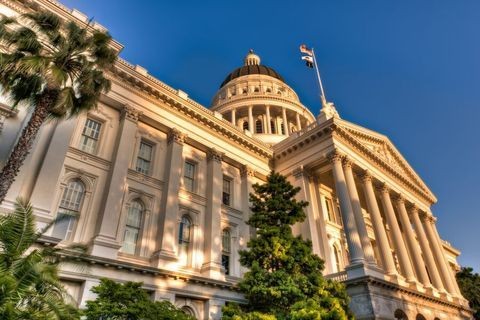Citizen Suit Watch Update: Ninth Circuit Denies Rehearing in Washington Environmental Council v. Bellon
Client Alert | 3 min read | 03.05.14
The Ninth Circuit denied rehearing last month in Washington Environmental Council v. Bellon, a contentious case highlighting the special standing issues that may arise in greenhouse gas litigation. See Wash. Envtl. Council v. Bellon, --- F.3d ----, 2014 WL 352674 (9th Cir. 2014).
The court's denial of rehearing leaves intact its October 2013 opinion. In that decision, discussed here, the court held that two environmental citizen groups lacked Article III standing to judicially compel state regulation of greenhouse gas emissions from five Washington State oil refineries. In the court's view, any connection between the specific emissions from the oil refineries and the plaintiffs' climate change-related injuries was "too attenuated" for purposes of threshold causation and redressability requirements.1
The decision to deny rehearing was not unanimous. In a dissenting opinion, Circuit Judge Gould (joined by Circuit Judges Wardlaw and Paez) protested the majority's refusal to find standing in the case and expressed concern that the court's approach would "foreclose citizen suits seeking to use the Clean Air Act to fight global warming."2 Judge Gould emphasized the Supreme Court's holding in Massachusetts v. EPA, disagreeing with the majority's conclusion that the "relaxed" standing analysis that applied in that case did not carry over to the case at bar. In his view, the plaintiffs in both cases equally "encourage[d] incremental change that . . . [was] sufficient for causation and redressability."3 Judge Gould's dissent also addressed one of the key questions left outstanding in the court's initial opinion: precisely what threshold of emissions would constitute a contribution meaningful enough to warrant review based on climate-change related injuries.4
A separate concurring opinion authored by Circuit Judge Milan Smith, Jr. (joined by Circuit Judge N. Randy Smith) defended the majority's denial of rehearing and the court's initial decision on standing. This opinion relied first on the rigorous standing principles that apply under Lujan v. Defenders of Wildlife, particularly where a private, unregulated third party seeks to challenge government action or inaction with respect to another.5 Judge Smith then reconsidered the evidence presented in the case, concluding again that the plaintiffs had failed to adduce any evidence that the desired regulations would actually result in significant greenhouse gas reductions capable of remedying plaintiffs' harm.6 The concurring opinion rejected the dissent's argument that the "relaxed" Massachusetts v. EPA standard should apply, emphasizing in particular the fact that Massachusetts involved "procedural" injury.7
Finally, the concurring opinion rejected the notion that the court's decision on standing would raise new impediments to litigation involving climate change issues. In its view, the court's decision "[d]id nothing to restrict environmental litigation beyond those limitations already established by the Supreme Court," and the states remained free to "experiment" in addressing the difficult issues surrounding greenhouse gas emissions.8
Given the divergent opinions on the complex standing issues in this case, it is likely that the courts will continue to grapple with these issues in similar cases for some time. Barring Supreme Court review and resolution, questions will undoubtedly recur regarding the precise circumstances in which a plaintiff will be able to overcome the inherent challenges of demonstrating standing in greenhouse gas cases.
1 Wash. Envtl. Council v. Bellon, 732 F.3d 1131, 1141 (9th Cir. 2013).
2 Wash. Envtl. Council, 2014 WL 352674, at *5 (Gould, J., dissenting).
3 Id. at *7 (Gould, J., dissenting).
4 Id. at *8 (Gould, J., dissenting) (characterizing the court's opinion as "impos[ing] on the environmental organizations a mandate to show some unidentified threshold of emissions before they may bring their suit").
5 Id. at *2-*3 (Smith, J., concurring) (discussing Lujan v. Defs' of Wildlife, 504 U.S. 555 (1992)).
6 Id. at *3 (Smith, J., concurring).
7 Id. at *4 (Smith, J., concurring).
8 Id. at *4, *5 (Smith, J., concurring).
Contacts
Insights
Client Alert | 6 min read | 01.06.26
California Privacy Agency Launches Data Broker Strike Force Amid Delete Act Crackdown
The California Privacy Protection Agency (“CPPA”) is intensifying its oversight of data brokers with a new dedicated Data Broker Enforcement Strike Force within its Enforcement Division. The strike force will monitor and investigate data brokers’ compliance with their legal obligations under California’s Delete Act and the California Consumer Privacy Act (“CCPA”).
Client Alert | 4 min read | 01.05.26
Another Court Rules CASA Does Not Limit Universal Relief Available Under the APA
Client Alert | 7 min read | 01.05.26
Consideration of Artificial Intelligence in Arbitration Terms of Reference
Client Alert | 4 min read | 12.31.25
Raising the Bar: New York Expands Consumer Protection Law with FAIR Business Practices Act



